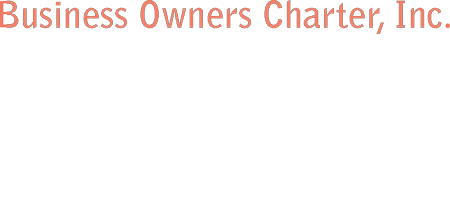Summary: Spend Agenda is a phrase coined by Business Owners Charter, Inc. (“BOC”) for recurring deficit spending threatening systemic risk. While uncertainty abounds from the Middle East to the final makeup of the US House of Representatives, there is no uncertainty about the unsustainable trajectory of the juggernaut Spend Agenda. BOC Portfolio Newsletter maintains that disintermediation risk, caused by a collapse of the US fiat money system, is the greatest systemic risk facing investors and that an allocation to self-custodied Bitcoin allocation is the best protection against this outcome.
Deficit Spending
According to the St. Louis Fed’s Federal Reserve Economic Data (“FRED”) site, the US Total Federal Debt stands at $34.8tn (trillion) dollars as of Q2 2024. BOC proprietary model (B620-Sovereign Debt-bm) forecasts that even with continued balance sheet reduction from the US Federal Reserve (“the Fed”), this will grow by an additional $1.78tn over the next year. President-elect Trump has proposed a number of policies that may meaningfully shift this projection, but an initial assessment of Trump’s tax policies by Bloomberg Economics on 11/8/2024 suggests that the deficit spending will continue. The Spend Agenda is political but not partisan as politicians of all stripes spend more than what is budgeted.
Devaluation
Rather than tackling the Spend Agenda directly, the US government can reduce the inflation-adjusted value of the US dollar to ease the burden associated with such a large deficit. This is known as “devaluing” the currency. Inflation, which is the rate of increase in prices over a given period of time, means that the purchasing power of the US dollar is decreased, and through this decrease the real cost of any debt also decreases. Tariffs have a history in currency negotiations and were used to implicitly pressure foreign governments to renegotiate with the US during the Plaza Accords as stated in this Politico article from 4/15/2024.
The “Inflation Tax”
In a Fortune article published May, 1977, Warren Buffet wrote:
“The arithmetic makes it plain that inflation is far more devastating tax than anything that has been enacted by our legislatures. The inflation tax has a fantastic ability to simply consume capital.”
The retiree on fixed income living out his golden years loses more purchasing power with every year to inflation, yet agents of the juggernaut Spend Agenda need the very same inflation to reduce the impact of more deficit spending each year. This divergence cannot last indefinitely, and it may end with a correlated collapse of all major asset classes.
Bitcoin, Scarcity, and Game Theory
Bitcoin self-custody is pure scarcity. Only 21 million may be issued. Transacting in pure scarcity protects participants in the exchange from the “devastating tax” of inflation. President-elect Trump stated in his keynote speech to the Bitcoin 2024 conference on 7/27/2024:
“If I am elected, it will be the policy of my administration, United States of America, to keep 100% of all the bitcoin the U.S. government currently holds or acquires into the future”
The formation of a US bitcoin “reserve” as described above may trigger a scramble amongst other economic powers to accumulate bitcoin to maintain some level of competition with the US, inviting all the interactions and strategies associated with sequential game theory scenarios.
Conclusion
Conclusion: The trajectory of the juggernaut Spend Agenda is unsustainable and a systemic risk that investors must consider. BOC Portfolio Newsletter maintains that an allocation to self-custodied Bitcoin allocation is the best protection against this outcome.
End of Special Report
Our BOC Portfolio Newsletter Special Reports cover matters that superior investing returns may require. For example, a 2008 Special Report thesis stated: “With respect to the 2008 bailout, the money to fund $1.4tn (trillion) dollars won’t be there, much less $9tn to $16tn dollars. If the money isn’t there and the government still wants its stimulus, the government has no choice except to print currency.”
And as predicted the money really wasn’t there. Printing fiat currency to fund the bailout was present, and was given the name Quantitative Easing.
Whether you are an Outsourced Chief Investment Officer (OCIO), Registered Investment Advisor CEO, Franchise Owner, a provider of a separately managed account (SMA), or other type of Financial Professional, we are an investment methodology fiduciary to investment firms like yours serving all risk tolerances. Call Dan at 708-825-7301 or email Dan@BusinessOwnersCharter.com.
